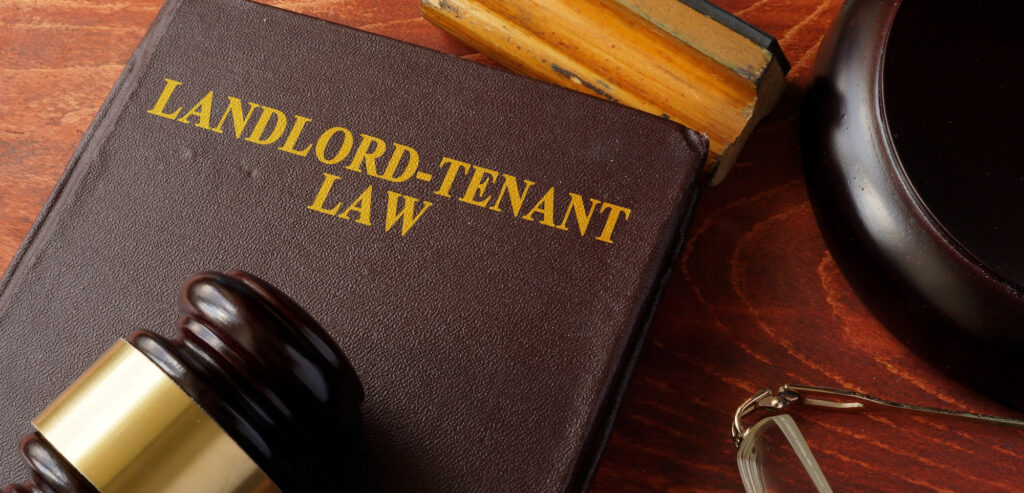It’s fair to say landlords have plenty to think about when it comes to compliance.
Put simply, though, a landlord’s legal responsibilities are largely based around the health and safety of their tenants – and that is not something to be taken lightly.
Laws on landlords responsibilities have been tightened and reformed in recent years and the best way for landlords to stay on top of their obligations is to use a managing agent.
Here, we’ll outline all the landlord regulations you can expect when you rent out your property…
Legal requirements for landlords
These are the key legal requirements a landlord is responsible for when letting a property:
* Fire safety and fire alarms
* Gas safety
* Electrical safety
* Energy Performance and Minimum Energy Efficiency Standards
* Legionella assessment
* Ensuring the property is ‘fit for purpose’
* Fitness for Habitation
* Tenancy deposit protection
* Income tax
* Right to Rent checks
Let’s look at these in more detail…
Fire safety
When it comes to fire safety, you should ensure each habitable floor of your rental property has a working smoke alarm in place, as well as carbon monoxide alarms in any rooms where there is a solid fuel burning appliance.
If you are renting your property out furnished, all furnishings, including beds, sofas, chairs and cushions, must comply with fire safety regulations.
Gas safety
All gas appliances and equipment in your rented property must have been installed by a Gas Safe Engineer and certified as safe.
Annual gas safety checks must also be carried out by a Gas Safe engineer and should include every appliance and flue.
As well as these safety measures, you must issue your tenants with a copy of the gas safety certificate at the start of the tenancy or within 28 days of a new check.
Failure to do so could mean you are unable to gain possession of your property through a section 21 eviction notice.
Electrical safety
Under current regulations, you are required to ensure all electrical equipment and wiring are safe.
Currently, Electrical Installation Condition Reports (EICR) are only a legal requirement for landlords letting Houses in Multiple Occupation (HMOs).
But this legislation is very likely to change in the not-to-distant future, meaning EICRs will be mandatory for all residential lettings.
Minimum Energy Efficiency Standards (MEES)
Firstly, your property must have a valid Energy Performance Certificate (EPC) and this must be issued to your tenant at the start of the tenancy or when it is renewed.
Since April 2018, meanwhile, private rental properties must not be let with an EPC rating below E.
This is part of MEES regulations and while this legislation currently only applies to tenancies starting since April 2018, from April 2020 it will apply to all residential tenancies.
Legionella assessment
As a landlord, another of your major obligations is to ensure water systems are checked for legionella bacteria.
While this can be done by you, Parkers recommends calling in an assessor for complete peace of mind. Speak to your local office if you would like to be put in touch with a local contractor who can complete this check for you.
‘Fit for purpose’ property
Under the Landlord & Tenant Act 1985, you must ensure your rental property is ‘fit for purpose’.
That means you must:
* Keep the property in a state of good repair
* Make sure it is structurally safe
* Prevent damp and ensure ventilation
* Supply water and electricity
* Provide heating
* Make sure it is energy efficient (MEES)
* Provide good personal hygiene, drainage and sanitation facilities
Fitness for Habitation
As a landlord, you must carry out repairs, when needed, to your rental property’s structure, sanitation facilities, plumbing, heating, hot water and electrics.
If you fail to maintain these areas of your rental property, your tenant could take legal action under the Homes (Fitness for Habitation) Act 2018, which came into force this year.
Tenancy deposit protection
As well as obligations to ensure your tenants are safe, you are also obligated to protect their financial interest in your property – namely their deposit.
The tenant’s deposit must be lodged with one of the three government-backed deposit schemes within 30 days of the start of the tenancy.
The three schemes are:
Your tenant could take legal action if you fail to do this and claim their deposit back, plus compensation.
Moreover, failure to protect your tenant’s deposit will mean you are unable to issue a section 21 notice to evict them should you wish to regain possession of your property at the end of a fixed term tenancy.
Income tax
As your rental property provides you with an income, you are legally obliged to pay income tax on your rental profits.
A raft of tax changes in recent years means you should check out Parkers’ guide to landlord taxes for more information.
Right to Rent checks
Right to Rent was introduced in 2016 as part of the government’s strategy to tackle illegal immigration.
Of course, if you are using a managing agent, they will take care of this for you, but if you are self-managing you must:
* Check every adult who will live in your rental property as their main home
* Ensure every tenant has shown original documents proving they have the right to live in the UK
* Make sure the documents are valid and do so with the tenant present
* Keep copies of the documents and record the date they were checked
* Perform a follow-up check if required when the tenant is on a time-limited status
* Report to the Home Office if the above check reveals a tenant no longer has the right to live in the UK
Other responsibilities
We’ve already outlined the main responsibilities you face as a landlord, but there are many other legal requirements you must follow.
These include allowing your tenants ‘quiet enjoyment’ of your property and correctly following eviction procedures should you need them.
The best way to stay compliant as a landlord is to use a good managing agent and Parkers would be delighted to discuss your needs.







